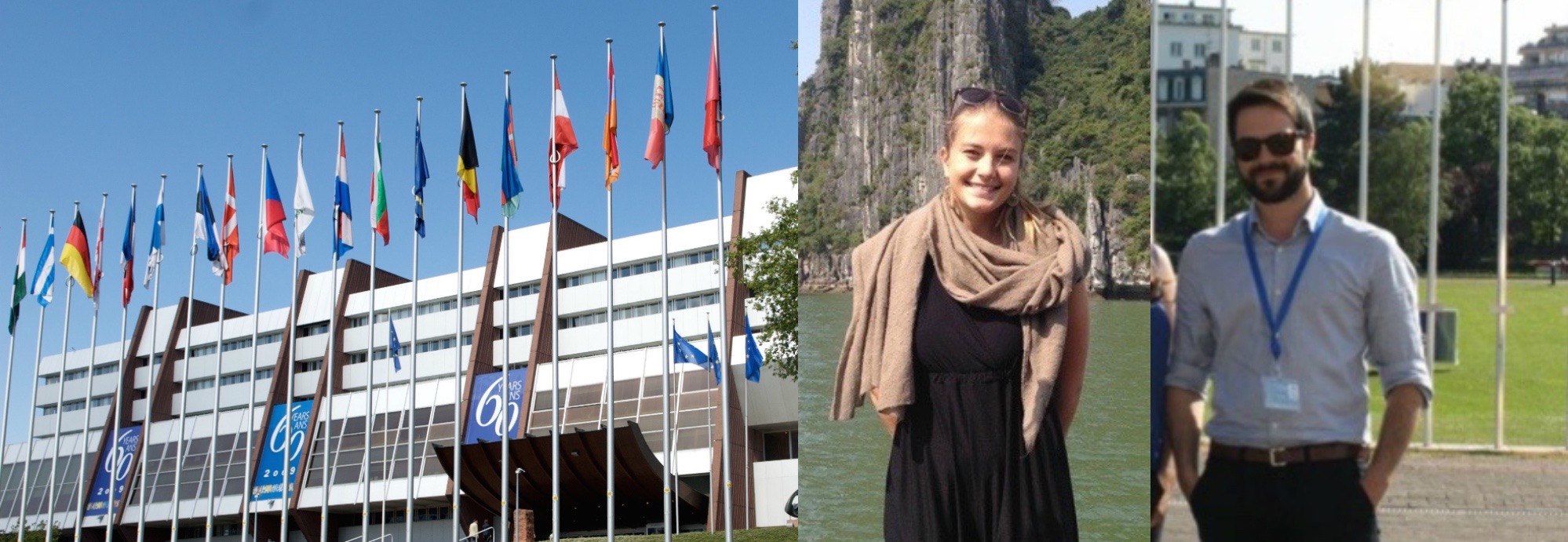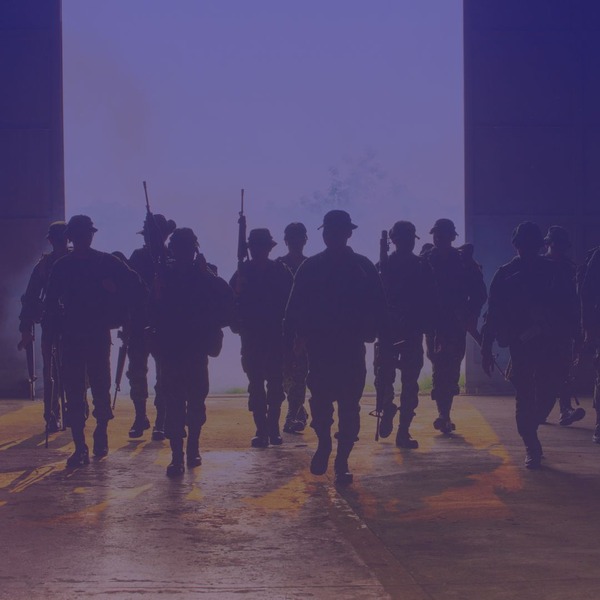
By Carlota Núñez Strutt, Director of Communication of the European Student Think Tank.
The EST spoke to two former Council of Europe interns, who spent several months in Strasbourg at the heart of the European policy process. Juan and Agathe reflect upon the work schedule of a Council of Europe trainee, the most rewarding aspects of the internship, struggles they faced, and the Council of Europe as a launchpad for a career in European policy-making.

Agathe Meriaux, from France, studied mathematics and economics for one year in an intensive foundation degree, and then entered a Political School, “Institut d’Etudes Politques”. This school lasts for 5 years, and she is currently spending her second year in Japan, Kyoto, studying international Political Relations, especially in Asia.

Juan Galván Montero, from Spain, studied a Bachelor of Arts Degree in Law (University of Málaga) and Master’s Degree in European Interdisciplinary Studies at the College of Europe. He has been a chief Executive Officer of Local Administration since 2007.
Q. What department was your internship at the Council of Europe in?
Agathe: My internship at the Council of Europe was in the Election department and the Actuality Commission of the Congress of Local and Regional Authorities.
Juan: My internship was in Secretariat of the Congress of Local and Regional Authorities.
Q. Describe your every day work at the Council of Europe:
Agathe: I first had several reports to do everyday, mostly for the Actuality Commission; about coming events for instance. For the Election department, I had a big paper to write, that lasted my entire internship, in order to prepare the Council of Europe Agents’ visit to Ukraine for the Local Elections held in October 2015. Therefore, everyday, I alternated between these tasks, according to the new ones I was given and the paper I had to finish.
Q. What struggles did you face in your internship and how did you overcome them?
Agathe: I struggled a bit with my working language, English as I am not a native English speaker. It was also challenging to handle my time in order to prepare my departure for my studies in Japan, 4 days after the end of my internship.
Juan: To work at the Council of Europe, even as a trainee, requires a quick adaptation and get familiar as fast as possible with the different roles in a specific department. At the beginning I felt a bit overwhelmed by the perfectly structured bureaucratic mechanisms of the Council, but little by little, asking to colleagues, my supervisor and other trainees, I started to get use to the dynamics of the Congress.
Q. How has your internship at the Council of Europe helped you in your career?
Agathe: My school and Masters degree, along with a possible PHD, all prepare me for a political career at an European level, which is my career goal. Therefore, this internship helped me to understand the actual everyday work of a person working at an European level indeed, and helped me precise the field in which I would like to work.
Juan: Maybe it is soon to evaluate to impact of the internship in my career, but I am sure that it was a very positive asset when it came to my admission at the College of Europe last year. I included in my motivation letter that fact the I would start that traineeship in March, as proof of my interest in European reality.
Q. What was your favourite aspect of your CoE internship?
Agathe: I enjoyed meeting other trainees and young professionals, as we had very similar ambitions and connected quickly. It was really inspiring to discuss about our background, personal or academic, and help each other with the work we were given. I also really appreciated meeting my work placement mentors, who taught me a particular way of writing or searching information that was incredibly useful.
Juan: The possibility of meeting amazing people from the whole world. That is an incredible feeling. And of course, the technical and soft skills you gain working hand by hand with European Officers.
Q: What advice would you give to future interns at the CoE?
Agathe: It is not an easy internship as it is a really academic work that we are asked to do. However this is very rewarding work, surrounded by amazing people.
Juan: My advice would be: Try to do your job as if you were, not a trainee, but an employee. You never know what future can bring.
Q. Are you planning on working in an International Organization like the CoE in the future?
Agathe: I would love to, and I will do everything I can to achieve this plan. However, I would like to work on a more economic-based International Organization.
Juan: Yes, I am planning that. The level of the competitiveness is extremely high but I trust in my possibilities.

- Articles and Blogs
- Economics
- EU Foreign Policy
- EU Policy Process
- Geen categorie
- law
- Q&A
- Uncategorized

 Is EU citizenship for sale – or for keeps? A critical analysis of the CJEU’s Golden Visa ruling.
Is EU citizenship for sale – or for keeps? A critical analysis of the CJEU’s Golden Visa ruling.  The European Union in Space: From exploration and innovation to security and autonomy
The European Union in Space: From exploration and innovation to security and autonomy  The Rise of the Right: The Threat Right-Wing Extremism Poses to Women and Feminist Efforts in Germany
The Rise of the Right: The Threat Right-Wing Extremism Poses to Women and Feminist Efforts in Germany  The silent shield – how special operations safeguard the global supply chain
The silent shield – how special operations safeguard the global supply chain 


